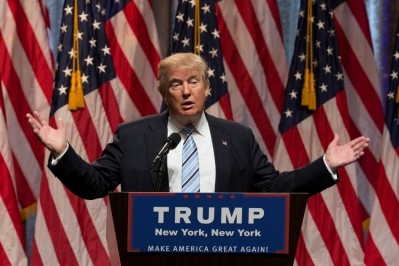European food industry leads calls for Lima progress on climate change

“There is an increasingly urgent need to progress with negotiations,” said director of environmental sustainability at FoodDrinkEurope Tove Larsson. “In the past, there’s been a sense of stalling by governments, but now we really need to get an agreement by November next year.”
She added: “The EU has been taking a lead on targets, but we need to do as much as we can to involve other partners.”
There are serious concerns that climate change is already affecting eco-systems and could undercut the availability and quality of agricultural raw materials over time. At the same time, according to the World Resources Institute, global food production will need to rise by at least 70% by 2050 simply to meet increased demand.
But FoodDrinkEurope said the food industry had already set a strong example in addressing the issue of greenhouse gas (GHG) emissions, achieving a 30% cut over the period 2003-2011.
This is not the first time that the organisation has called for progress on action against climate change.
“A number of our members have become more vocal in addressing these issues,” said Larsson. “You could say that current efforts are business-led.”
Activities in the European food supply chain include the Sustainable Consumption and Production Round Table, co-chaired by the European Commission (EC). Earlier this year, it published a protocol on environmental assessment, setting out the processes for understanding where and how carbon footprint reduction can be achieved. The EC is currently piloting implementation of the protocol.
“There are also separate corporate initiatives, such as one jointly led by Unilever and Coca-Cola aiming to reduce the use of fluorinated gases in refrigeration and move to natural refrigerants,” said Larsson. “In this case, the UN Environment Agency is a partner.”
FoodDrinkEurope emphasised the link between food waste and emissions of embedded GHGs. It has for example led on the ‘Every Crumb Counts’ joint declaration to reduce food waste.
Observers have said that the current Lima round of negotiations offers the best chance in two decades of brokering a global agreement on climate change. Earlier in November, China and the US made a joint declaration of intent to grapple with their own emissions. Both laid down specific reduction targets for 2025 and 2030.
Earlier, the EU undertook to make a 40% cut on 1990 baseline emission levels by 2030.
CO2 emissions are reportedly forecast to hit 40bn tonnes in 2014, with global temperatures this year shaping up to be the warmest ever recorded.



















